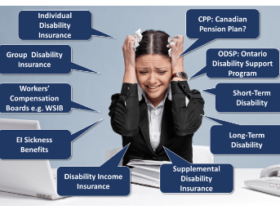Personal Injury Protection
Personal Injury Protection, commonly known as PIP insurance, is a type of car insurance coverage that provides financial support for medical expenses, lost wages, and other injury-related costs, regardless of fault, if you’re involved in an accident. If you’ve ever wondered how PIP works, what it covers, and how to get the best PIP insurance, this article covers all the essentials.
What is Personal Injury Protection (PIP) Insurance?
Personal Injury Protection is a type of no-fault insurance, meaning that it provides coverage to the policyholder and passengers without regard to who caused the accident. PIP is particularly important in no-fault states, where each driver’s own insurance is responsible for covering medical bills up to a specific limit. However, even in states where it’s not required, PIP coverage can be valuable, providing a financial cushion that goes beyond basic auto liability insurance.
PIP can help cover the medical expenses of both the policyholder and their passengers, reducing out-of-pocket costs after an accident. Some states require drivers to carry PIP, while in others, it’s optional. Check your state’s regulations to understand the minimum requirements for PIP insurance in your area.
What Does PIP Insurance Cover?
PIP is a comprehensive coverage option that goes beyond standard medical payments (MedPay) coverage. Here’s a closer look at what PIP typically covers:
- Medical Expenses
PIP insurance covers the medical costs of treating injuries from an accident. This can include hospital visits, surgeries, X-rays, prescription medications, rehabilitation services, and even chiropractic care. It’s designed to ensure that all injury-related medical expenses are taken care of, which can be crucial for those who may not have extensive health insurance. - Lost Wages
If you’re unable to work because of injuries sustained in an accident, PIP can help cover your lost income. This coverage provides a source of financial support if you’re temporarily out of work and can significantly ease the financial burden for accident victims, especially those without short-term disability insurance. - Funeral Costs
In the unfortunate event of a fatal accident, PIP can help cover funeral expenses. This can alleviate some of the financial stress for families dealing with the loss of a loved one and is a valuable benefit that many drivers may overlook when considering PIP insurance. - Childcare and Other Services
PIP can also cover essential services if you’re unable to perform regular household duties due to injury. This may include childcare, housekeeping, and other necessary tasks that ensure your household continues to function smoothly while you recover.
How Does PIP Work in No-Fault States?
In no-fault states, each driver’s PIP coverage is responsible for their own medical expenses, regardless of who caused the accident. This system is intended to reduce litigation costs and expedite claim payments by eliminating the need to determine fault for minor injuries.
No-fault laws vary by state, and PIP coverage limits differ as well. For instance, in Florida, a no-fault state, drivers must carry at least $10,000 in PIP coverage. New York also requires PIP, but the minimum amount is $50,000. These laws mean that even if another driver caused your accident, your own PIP coverage pays for your initial medical bills up to the limit.
The Difference Between PIP and MedPay Coverage
PIP and MedPay are both types of car insurance that cover injury-related expenses, but they have distinct differences:
- Coverage Scope: MedPay typically covers only medical expenses, while PIP can also cover lost wages, childcare, and other services related to injury recovery.
- Availability: MedPay is generally available in all states, while PIP is primarily offered in no-fault states or as an optional coverage in states without no-fault laws.
- Limits and Premiums: PIP coverage often has higher limits and is more expensive than MedPay due to the additional benefits it offers. MedPay, being a simpler form of coverage, is generally less costly.
Choosing between PIP and MedPay depends on your location, insurance needs, and financial priorities. If you live in a no-fault state, you may be required to have PIP, but even in other states, it can be a beneficial option.
Do You Need Personal Injury Protection?
Whether you need PIP insurance depends on a few factors, including your state’s requirements, the coverage provided by your health insurance, and your risk tolerance. Here are some considerations to help you decide:
- State Requirements: If your state mandates PIP, then you’ll need to carry it. States like Florida, Michigan, and New Jersey, among others, require PIP as part of their no-fault insurance systems.
- Existing Health Insurance: If you have robust health insurance that covers injuries sustained in car accidents, you may feel comfortable with lower PIP limits. However, PIP can still provide valuable benefits that health insurance doesn’t, such as lost wage compensation.
- Risk Tolerance and Financial Situation: If you’re self-employed or rely on a steady paycheck, PIP can be essential to ensure you have financial support while recovering from an accident. On the other hand, if you have other forms of income protection, you may be able to reduce your PIP coverage limits.
- MedPay as an Alternative: If PIP isn’t required in your state and you only need help covering immediate medical bills, MedPay may be an option to consider instead. It’s typically less comprehensive but may meet your needs if you already have strong health and disability insurance.
Tips for Choosing PIP Coverage
If you’re considering adding PIP to your car insurance, here are some key points to keep in mind:
- Review Your Health Insurance Coverage
Check to see what your health insurance covers and where it falls short. This can help you determine how much PIP coverage is necessary. PIP is especially valuable for people with high-deductible health plans or limited health insurance. - Consider Your Family’s Needs
If you regularly drive with family members or other passengers, consider their needs as well. PIP covers everyone in your vehicle, so a higher limit may be beneficial for families. - Evaluate Lost Wages and Expense Coverage
Think about how much income you would need to replace if you were unable to work for an extended period. This can help you set appropriate limits for the lost wages aspect of your PIP coverage. - Compare Quotes from Multiple Insurers
PIP rates vary by provider, so it’s worth comparing quotes from several insurers to find the best balance between coverage and affordability.
How Much Does PIP Coverage Cost?
The cost of PIP insurance depends on various factors, including your location, the coverage limits you select, your driving history, and your age. For example, states with high PIP coverage requirements, like Michigan, generally have higher insurance premiums.
On average, PIP adds between $50 and $200 annually to your auto insurance policy, though costs vary based on the coverage limit. Some insurers may offer discounts if you bundle PIP with other coverage types or if you have a good driving record.
PIP Claim Process: What to Expect
In the event of an accident, filing a PIP claim typically involves the following steps:
- Report the Accident
Notify your insurance company as soon as possible after the accident. PIP claims are generally time-sensitive, so quick reporting is essential. - Document Medical and Other Expenses
Keep all documentation related to your medical expenses, lost wages, and any other covered services. This will help ensure a smooth claims process and accurate reimbursement. - Work with Adjusters
Your insurance company may assign a claims adjuster to assess your case and determine the appropriate payout based on your coverage limits. - Receive Payout
Once approved, your insurer will pay out your PIP benefits according to the terms of your policy. Some states allow PIP to pay directly to healthcare providers, while others reimburse the policyholder.
Final Thoughts on Personal Injury Protection
Personal Injury Protection insurance provides vital coverage that extends beyond basic medical expenses, offering financial support for lost wages, essential services, and even funeral costs. Whether mandated by law or chosen as an add-on, PIP can be a lifeline for drivers seeking comprehensive protection.
Remember, the right amount of PIP coverage depends on your location, health insurance, and financial situation. By understanding what PIP covers and assessing your needs, you can make an informed decision about the best PIP policy for your circumstances.









Leave a Reply
View Comments